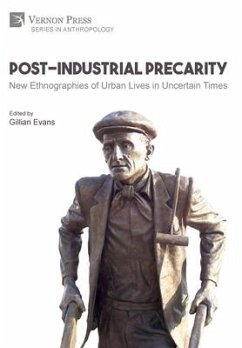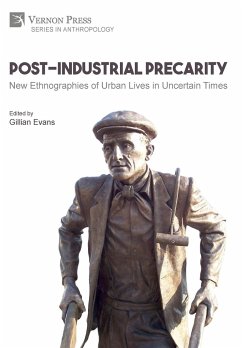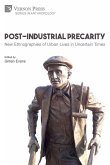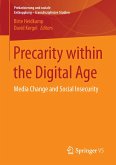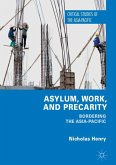The United Nations predicts that by the year 2050 almost 70% of the planet's population will be living in cities. The onus on social scientists is to explain the contemporary challenges posed by the urbanization of the world. A growing body of literature raises the alarm about the precarity of human existence in the uncertain conditions of rapidly transforming contemporary cities. This volume brings together a diverse collection of new ethnographies of precarious lives in various cities of the world. The specific focus on post-industrial cities in the UK allows for a wider consideration of the urban conditions and the political and economic climates which combine to produce extremely precarious living conditions for urban populations elsewhere in the world.The productive consequence of the comparisons and contrasts of various urban contexts, made possible by the volume, is an analytical focus on what it means for humans to live and occupy different subject positions under the advancing conditions of contemporary global capitalism. The volume's chapters are also united by the shared commitment of early career social science scholars to ethnography as a research method. This gives a common methodological focus to diverse topics of substantive concern located in various cities of the world from Manchester, Newcastle and Salford in the north of England, to Detroit in the USA, Rio de Janeiro in Brazil, Turin in Italy and Beirut in Lebanon. Ethnography, relying as it does on long-term participant observation and in-depth open-ended interviewing, is uniquely valuable as a resource for bringing to life the unpredictable ways in which humans survive and develop forms of resilience among, for example, the ruins of dying cities. Ethnography also enables social scientists to understand and add depth to the surprising stories and apparent contradictions of everyday protest in the face of the increasing privatization of the public good and extreme inequalities of wealth. Ethnographically grounded analyses of urban life are therefore uniquely positioned to explain and critically analyse the new politics of popular resistance as the people who feel 'left behind' by society, or expelled from what might be described as the 'exclusification' of urban environments, push back against an economy and politics that appears to exist only for the private benefit of an indifferent elite population.
Hinweis: Dieser Artikel kann nur an eine deutsche Lieferadresse ausgeliefert werden.
Hinweis: Dieser Artikel kann nur an eine deutsche Lieferadresse ausgeliefert werden.

